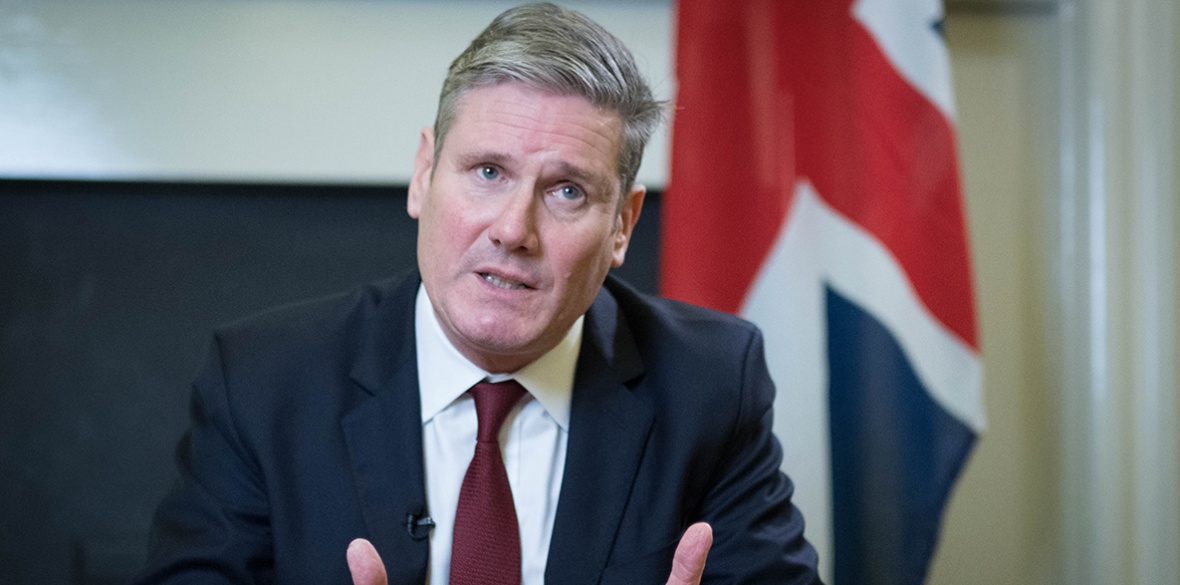This is the last article you can read this month
You can read more article this month
You can read more articles this month
Sorry your limit is up for this month
Reset on:
Please help support the Morning Star by subscribing here
LABOUR politics has entered a new phase. The disappointments of the recent period; the election defeat; Sir Keir Starmer’s abandonment of his electoral pledges; and the paralysis that passivity in the face of the government’s Covid-19 blunders engenders are giving way to a new realism.
Shadow chancellor Anneliese Dodds has made it absolutely clear to our banker bourgeoisie that Labour, led by the present top team, presents no serious threat to the present distribution of wealth and class power.
In its fawning to the incoming US administration, Labour betrays its enthusiasm for Britain to resume, within the limitations imposed by a Brexit it finds suddenly congenial, our country’s disreputable role as US imperialism’s most enthusiastic partner and a willing instrument for the projection of US strategic interests in our continent.
Labour’s dispiriting internal culture, made more maudlin by the ban on on discussion and decision-taking, is now disfigured by an ugly rash of suspensions that assumes purge-like proportions.
Richard Leonard’s resignation, made almost inevitable by the surly sabotage of an unreconstructed regiment of Scottish Labour’s most discredited reactionaries, is an almost certain guarantee that the crisis-riven SNP government gets a free pass at the forthcoming elections.
That this coup was engineered with the active engagement of rich donors whose support for Labour is entirely conditional on it abandoning any threat to their wealth tells us much about the way the party is currently run.
The weekend launch of Jeremy Corbyn’s new project gives the working class and labour movement — and circles wider still — a sense that the arguments for a progressive foreign policy, against austerity and the dictatorship of capital, for individual liberties and human freedoms, for peace and liberation have a wide and growing audience.
And Corbyn’s decision to take the defence of his political rights as a Labour member and as a citizen to the High Court is a reminder that the battle for political principle takes many forms.
That being said, it is necessary to take sober stock of the situation for socialists who are serious about working-class power.
In the foreseeable future we are unlikely to see a rerun of the situation in which a leadership challenge might stimulate a socialist tsunami sufficient to supplant the obstacles to radical change in Labour or reconstitute its parliamentary fraction as representative of the membership or electorate.
The left in Parliament is reinforced by some courageous new MPs (and lords for that matter) but itself is divided on key ideological and political questions and collectively lacks the cohesion to challenge the direction the party is taking in Parliament or the numbers to effect change at the level of the national executive committee.
But outside the narrow confines of parliamentary politics there is real change of mood.
The CWU won its long-running pay and working time dispute; the NEU mounted a successful challenge to the government’s school-opening policy; coronavirus-confined students taking to rent strikes, as in Manchester, are winning major concessions; while health workers are giving voice to a growing argument that what they want is not claps but cash.
The one certain feature of British politics is that so long as the working class is quiescent then no change will come.
The pathway to progress is for trade unions to take the offensive with a massive organising drive and a campaign for pay and income security, for the anti-war and anti-austerity movements to move into high gear and for socialists to start arguing for socialism. This is a capitalist crisis and socialism is the solution.










